'What a groundbreaker': Tulsa musician Dwight Twilley dies ahead of hall of fame honor
Last week, influential Tulsa singer-songwriter Dwight Twilley was notified that he had been chosen for induction into the Oklahoma Music Hall of Fame.
"The greatest thing about my job is getting to make that phone call: I spoke to him and his wife Jan ... and they were so excited," said Tony Corbell, the executive director of the Muskogee-based institution.
"It was so upbeat, and it was so nice. We just had a nice, long conversation about it all. Of course, we said we'd talk details when we get our show dates and our location, and when we get worked out who Dwight would like to have induct him. ... And we never got to have the second call.
"It's pretty shocking."
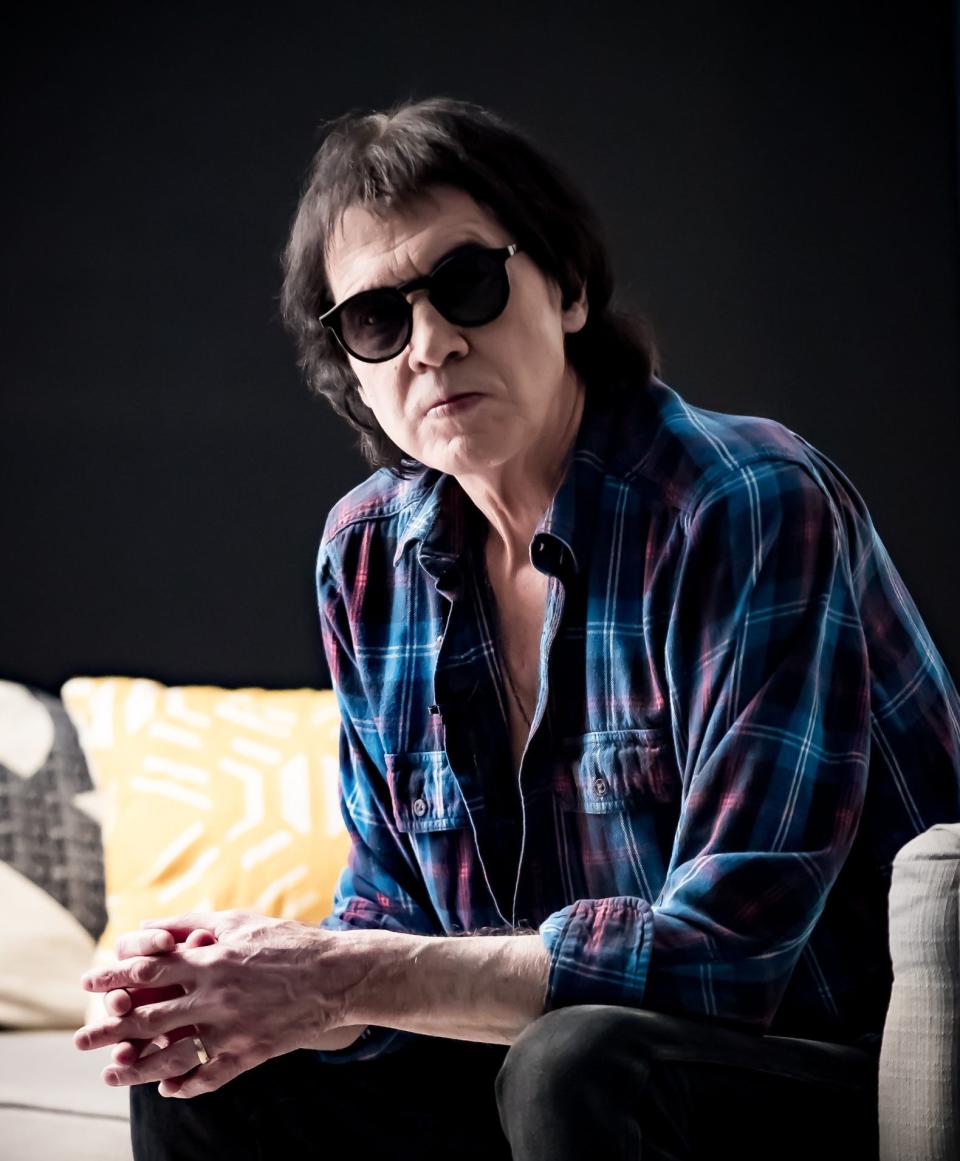
A pioneer of the rock subgenre power pop, Twilley, who hit the Top 20 on the Billboard charts with his singles "I'm on Fire" in 1975 and "Girls" in 1984 and worked with the likes of Tom Petty and Leon Russell, died Wednesday in a Tulsa hospital. He was 72.
Teresa Knox, owner of Tulsa's historic Church Studio and a friend of Twilley's, said the musician was unconscious when he was taken to a Tulsa hospital a few days ago after he was involved in a single-car accident. Doctors determined he had suffered a stroke. She said his wife and close friends were by his side when he died Wednesday.
"All of the artists that came out of Tulsa I really followed, and what I really loved about Dwight is he just had a unique sound. It was different than the Tulsa Sound that was coming out with Leon and J.J. Cale and even David Gates. ... Dwight had that power pop that had those really catchy melodies and lyrics. And I just love that about him," Knox said.
"He was really a trailblazer."
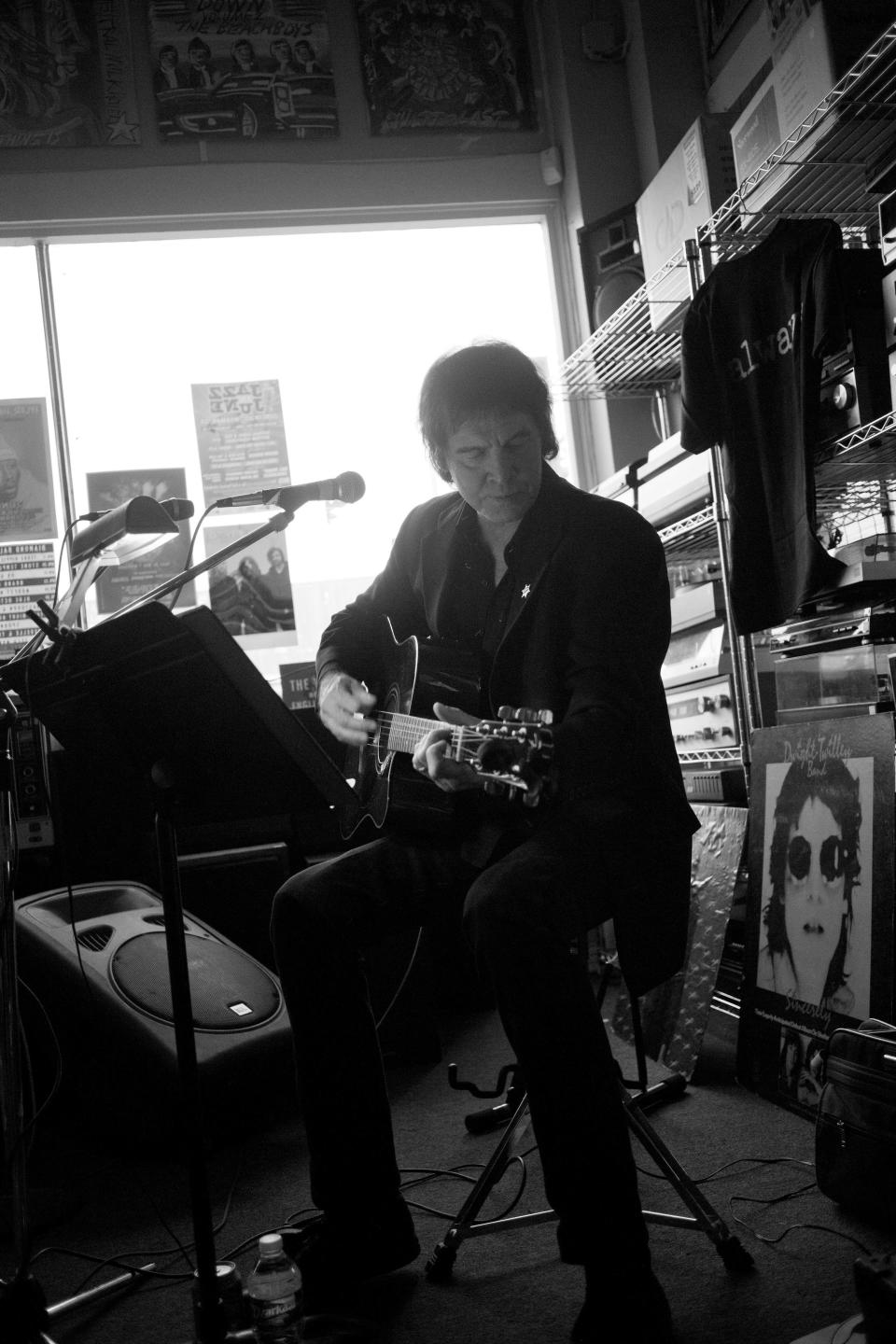
Who was Dwight Twilley?
Twilley was born June 6, 1951, in Tulsa. As a teen, the Beatles inspired Twilley to make music, and it was thanks to the Fab Four that he met his musical partner and fellow Tulsan Phil Seymour (1952-1993). The Edison High School mates crossed paths at a 1967 screening of The Beatles' "A Hard Day's Night" at a Tulsa movie theater and soon began writing songs and recording together, first under the band name Oister and later as the Dwight Twilley Band.
Since they couldn't afford a trip to Los Angeles or New York to pursue their musical dreams, they took their demo tapes, loaded up in Twilley's 1958 Chevy station wagon and headed for Tennessee.
At Sun Records in Memphis, iconic producer Sam Phillips took a shine to their sound but thought it needed seasoning. So, he sent them to get some rockabilly training from Ray Harris, an early Sun recording artist who lived in Tupelo, Mississippi.
"I think the one thing that set the Dwight Twilley Band aside from other pop-type acts is that we got that rockabilly/Sun edge and combined it with the Beatle thing," Twilley told The Oklahoman in a 1999 interview.
They added another pal, Bill Pitcock IV (1952-2011), on lead guitar, and the Dwight Twilley Band caught the attention of producer Denny Cordell, who signed them in 1974 to Shelter Records, the label he co-owned with famed Tulsan Leon Russell.
Twilley and his cohorts soon found themselves back in Tulsa and making music at Russell's Church Studio, where they recorded their debut single "I'm on Fire." It was burned up the Billboard Hot 100 for eight weeks in the spring of 1975, peaking at No. 16.
"The power-pop sound he crafted predated, anticipated and foretold the oncoming punk and New Wave movements of the 1970s and early '80s," said "Oklahoma Music Guide" author Hugh Foley.
"Certainly, he's one of the under-recognized pop-rock figures that have come out of Oklahoma."
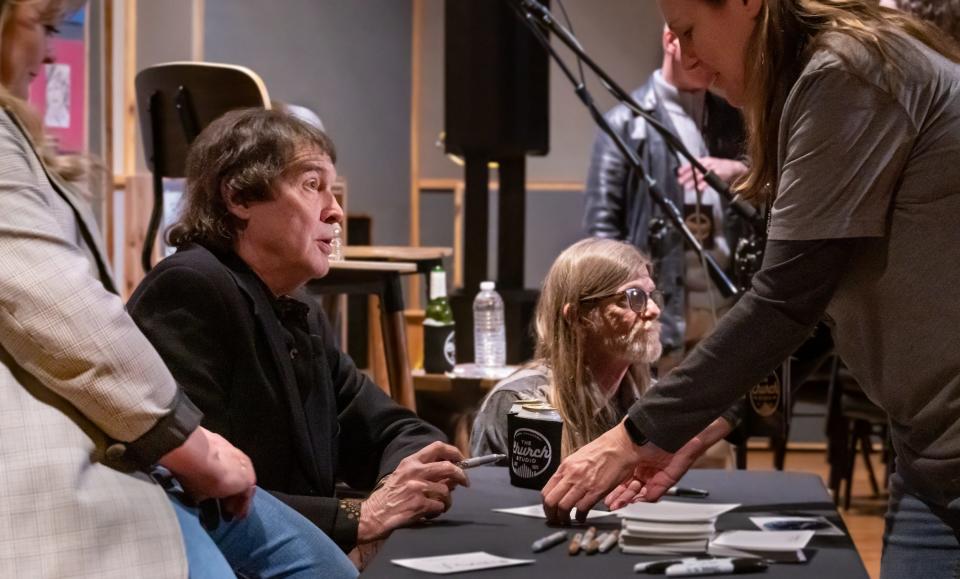
Tom Petty and Dwight Twilley contributed to each other's music
Although "I'm on Fire" heated up the charts, the Dwight Twilley Band's debut album was delayed for nearly a year when Russell and Cordell parted ways and Shelter Records collapsed. When the LP "Sincerely" was finally released by ABC in 1976, Rolling Stone deemed it the "best debut album of the year."
The 1977 follow-up, "Twilley Don't Mind," featured Tom Petty, an up-and-coming labelmate, on guitar. The future Rock and Roll Hall of Famer also made his national television debut playing bass behind Twilley on a Saturday morning children's show named "Wacko," and Petty, who died in 2017, later credited Twilley with writing the guitar hook in his breakthrough hit, "Breakdown."
Petty's estate memorialized Twilley in a Facebook post on Thursday, sharing a vintage video of Petty playing bass on the "Twilley Don't Mind" fan-favorite track "Looking for the Magic."
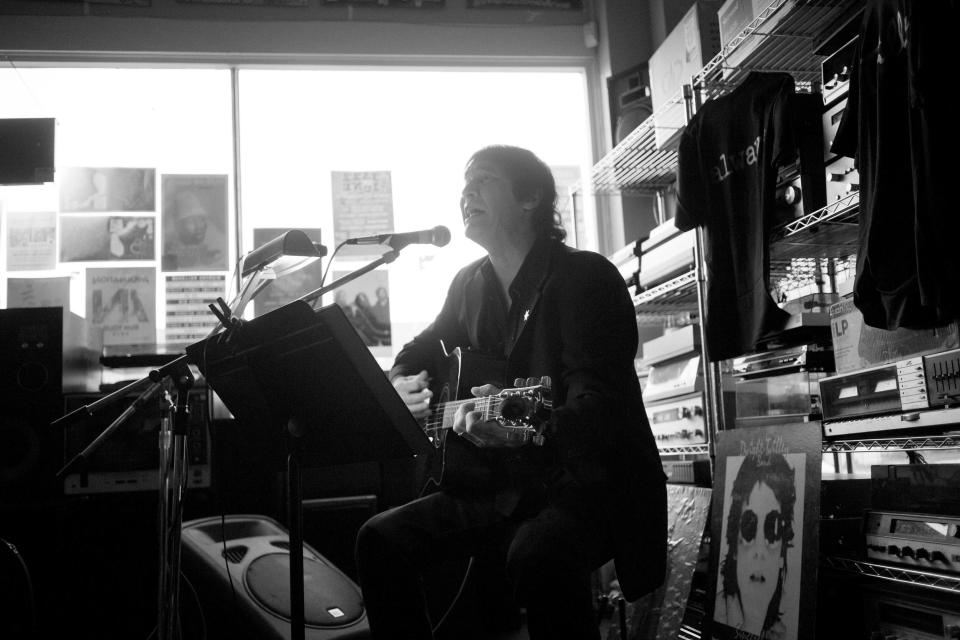
How did music industry misfortunes hinder Dwight Twilley's career?
After the Dwight Twilley Band split up in 1978, Twilley carried on as a solo artist, and in the early 1980s, he earned prime airplay on the emerging MTV. On social media Thursday, original MTV VJ Martha Quinn acknowledged Twilley as "part of the first wave of artists who put MTV on the map."
With his 1984 album "Jungle," Twilley unleashed his next Billboard 100 hit,"Girls," which also made it to No. 16 and featured Petty on vocals.
"The follow-up to that wasn't successful, so he left the label and signs with a Sony imprint — and wakes up to the day of the release of his record ('Wild Dogs') with the president of the label being arrested by the FBI on TV for the largest payola scandal in the world," said Dean Swett, who has worked as Twilley's agent and co-manager, with Twilley's wife, for 22 years.
"He's one of the most brilliant songwriters I've had the honor and privilege to work with, and probably one of the best storytellers. ... But he was plagued with pitfalls along the way, which always prevented him from achieving the success and notoriety that he was worthy of."
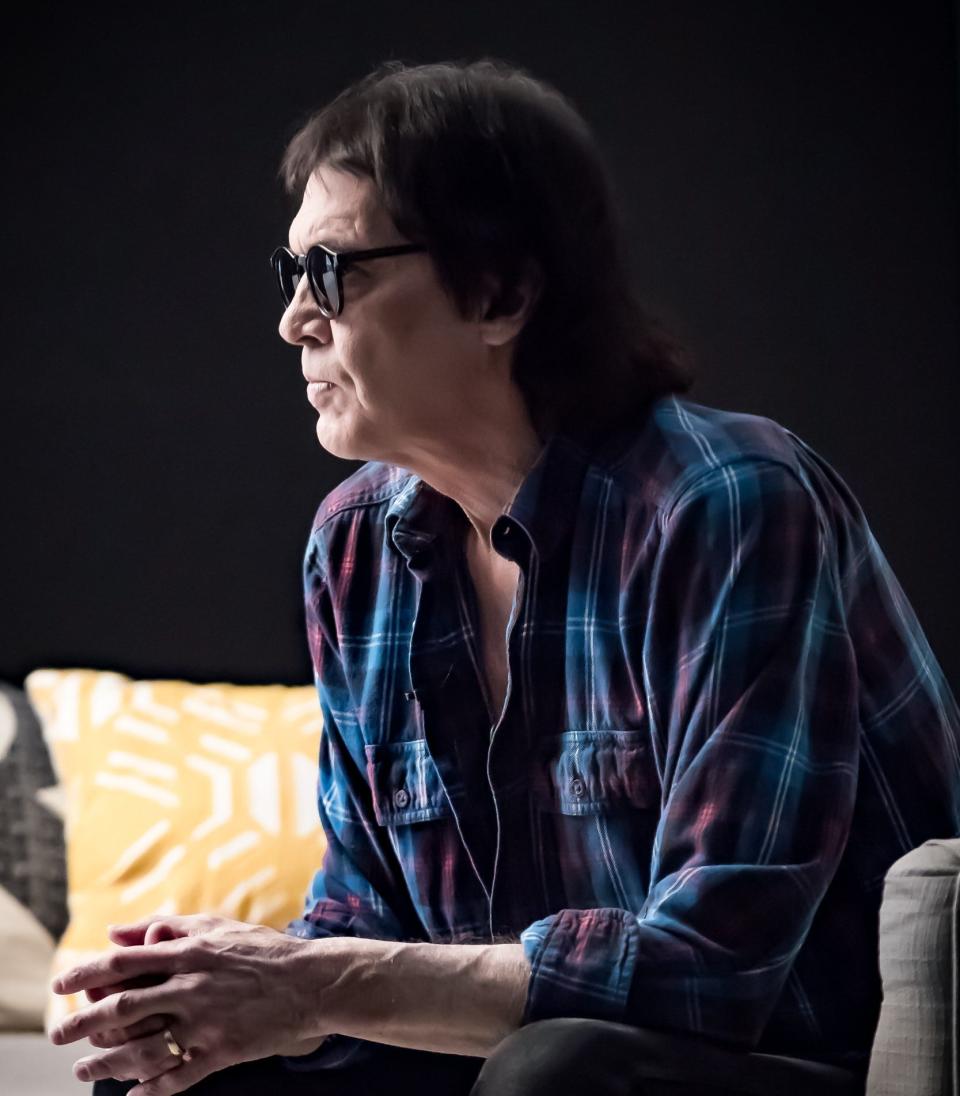
'Wayne's World' and an earthquake brought Dwight Twilley back to Oklahoma
In 1992, Tia Carrere's cover of Twilley's ballad "Why You Wanna Break My Heart," from his 1984 "Jungle" album, was featured in the hit movie "Wayne's World" and its chart-topping soundtrack.
When the 1994 Northridge earthquake damaged Twilley's Los Angeles house and studio, the proceeds from "Wayne's World" helped the singer-songwriter move back home to Tulsa and build his Big Oak Studios.
"Then, he proceeded to put out nonstop music for the next 23 years. It was the best music he had ever done," said Swett, who released earlier this year on vinyl "The Best of Dwight Twilley: The Tulsa Years 1999-2016, Vol. 1" on his fledgling Paramour Group label.
"So, he never achieved that kind of notoriety, but he garnered so much respect from his peers and his fans, because they knew how good he really was. The music basically speaks for itself."
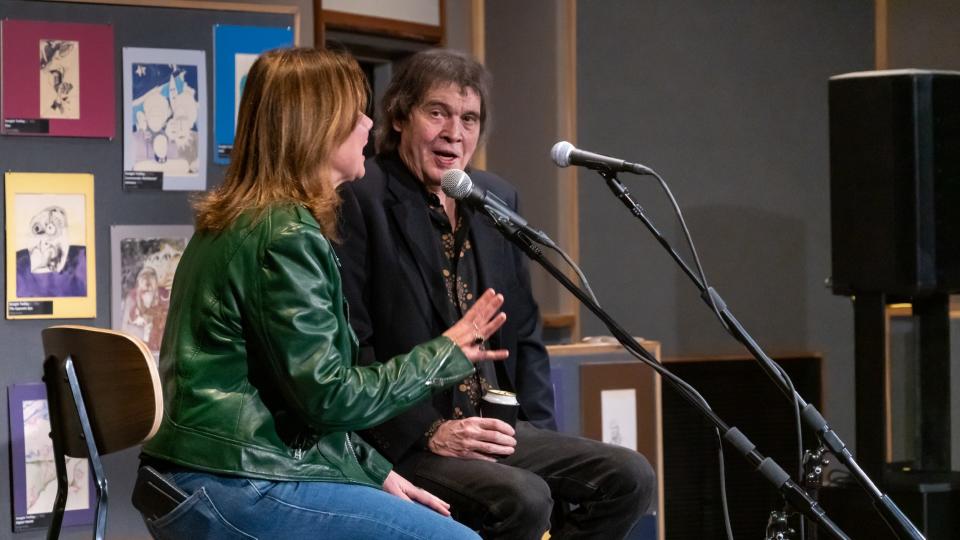
How has Dwight Twilley continued to influence Oklahoma musicians?
Brad Piccolo of the venerable Oklahoma band the Red Dirt Rangers had been a fan of Twilley since he watched him on "American Bandstand" in 1975. So, the guitarist and singer was starstruck when he followed the signs to a 2001 Tulsa garage sale and realized Twilley was hosting it.
The encounter inspired Piccolo to write the song "Dwight Twilley's Garage Sale," and when the Rangers recorded it for their 2002 album "Starin' Down the Sun," Twilley ventured back into The Church Studio to sing background vocals for a price: a Dr. Pepper.
"Dwight was a really creative guy, so (there was) no telling what you would get out of him. But he was really so talented, and what a groundbreaker," Piccolo said.
"For a young guy like me, he was such an influence. It's like, 'Hey, I can do that. That's what I want to do ... and he's from Oklahoma.' So, that was encouraging as a kid."
At The Church Studio, Knox told The Oklahoman Thursday that the landmark was swamped with visitors coming in to pay tribute to Twilley.
"It's just really neat to see how loved he was by his hometown — but he was admired and loved nationally and internationally as well," Knox said, adding that Twilley was also a painter, illustrator and children's book author.
"Dwight's gonna be remembered for his generosity and his desire to entertain people with really beautiful and fun lyrics and happy, catchy hooks. ... He'll be remembered for being someone very, very loyal to where he got his beginnings with Leon Russell and Shelter Records. He'll be revered by other artists that gain inspiration from his unique, trailblazing style."
Corbell, the Oklahoma Music Hall of Fame director, said that Twilley is scheduled to be inducted in February in Muskogee. He said he expects the induction to go forward, even though it will now be a posthumous honor.
"We will have an area in our museum dedicated to Dwight, and we're going to be honoring him the best way we possibly can," Corbell said.
This article originally appeared on Oklahoman: Oklahoma music pioneer Dwight Twilley dies ahead of hall of fame honor
